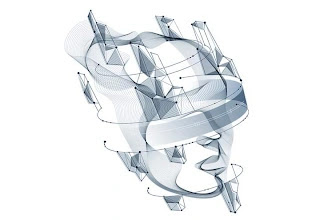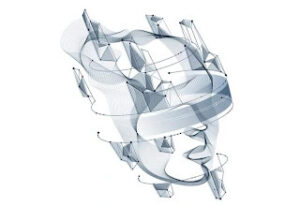Fluid Intelligence In Future Problem Solving
There are many who are good at solving problems by using new information and knowledge. However, no previous information or experience hinders their thinking while coming up with a solution. In this way, those who constantly can solve new problems without using previous experience. Their intelligence is called ‘Fluid Intelligence’.
Fluid Intelligence In Future Problem Solving
That is, those whose flow of thought is very dynamic, their intelligence can be called ‘fluid intelligence’. Psychologist Raymond Cattell first noticed this in 1963. He considered fluid intelligence to be part of our general intelligence. Cattell divides human intelligence into two categories: ‘fluid intelligence’ and ‘crystallized intelligence’.
Now we will try to understand the topic of fluid intelligence better. And know how fluid intelligence is tested or measured and how it differs from crystallized intelligence.
What Does Fluid Intelligence Mean?
Fluid intelligence is the ability to think about something hypothetically or abstractly without any prior knowledge or idea and quickly find the cause of that phenomenon.
You may have seen people who have fluid intelligence. That is, those who can use new information to come up with new ideas or theories and solve problems. But they do not need any prior knowledge or experience to do so.
When talking about different types of intelligence, we are talking about two types of intelligence or two types of intelligent people.
There is a type of people who can solve problems without any prior ideas. There are other types of people who have reached the level of expertise or expertise in working on a subject.
We can call the intelligence of the first type of people ‘Fluid Intelligence’. And the second type of intelligence is called ‘crystallized intelligence’.
At times many are heard to say that they feel that their intelligence is diminishing. But to be precise, their fluid intelligence may decrease over time. On the other hand, crystallized intelligence can increase.
Fluid intelligence comes into play when we think of a puzzle or problem-solving strategy. Because I may not have seen these new problems before. So you have to use your imagination and thinking power to solve it.
Crystallized intelligence is required in many areas of life, especially in the workplace. But now the demand for fluid intelligence is also increasing day by day.
Today, we are creating workplaces where imagination and imagination are greatly used. We have more complex problems to solve than previous generations. And to understand and solve these problems very quickly, you have to learn quickly.
How Fluid Intelligence Is Tested And Measured
Fluid intelligence can be measured in a number of ways. These include the Woodcock-Johnson Test of Cognitive Abilities, Raven’s Progressive Matrices and the Wesschler Intelligent Scale for Children.
Each test measures people’s fluid intelligence in different areas. But the main purpose remains the same. And that is to check and measure how high or low one’s mental skills are like fluid intelligence.
The Woodcock-Johnson test looks at two things. Firstly thinking in hierarchical form and secondly reasoning step by step. In this exam, questions in the form of puzzles or riddles gradually become difficult. And from the results, fluid intelligence is measured by considering the thinking style of the examinee.
Raven’s test, on the other hand, evaluates the relationship between different psychological factors. It is a multiple choice or multiple choice test. Here, by showing pictures of different objects, the examinee is asked to find patterns or relevant features in the pictures.
And Wessler’s test for children shows children any object or picture. Results are determined based on their behavior after visualizing those images. It is not an oral test. Rather, in this test, the structure of the candidate’s reasoning is measured by showing him various images.
According to conventional wisdom, most people’s fluid intelligence is at its peak before age 30. Then it gradually decreases. This is thought to be because after this age there is less need to work on fluid intelligence. Rather, after this age we have to rely more on our previous experience and knowledge for daily tasks. However, some studies have shown that our fluid intelligence does not decrease until the age of 50.
Yet mental skills such as fluid intelligence need to be tested with age. Fluid intelligence is required for the normal functioning of our brain as well as for various tasks of daily life.
Employers can recruit more qualified candidates into organizations by measuring fluid intelligence or crystallized intelligence through testsb. It is possible to get a better idea of a candidate’s intelligence through such tests than through CV or face-to-face interviews.
Fluid Intelligence Vs. Crystallized Intelligence
Crystallized intelligence is built on the basis of our life experiences and data collected over time. As we age, fluid intelligence decreases. Crystallized intelligence, on the other hand, increases with age and reaches its peak at the age of 60-70 years.
On the other hand, fluid intelligence is formed from our childhood. And as we age, our crystallized intelligence increases as we become more dependent on past experiences.
It may seem that these two types of intelligence are different from each other. But these two issues are actually closely related to each other. And we have to use both these types of intelligence while doing different types of work according to the situation.
For example, during math exams we strategize with fluid intelligence how to solve all the questions within the allotted time. But we need to use crystallized intelligence to figure out the answer to each question.
With fluid intelligence we can solve new problems without any previous experience. Can solve a new subject, puzzle or mental skill problem, on the other hand with the help of crystallized intelligence we can use previous experience and knowledge to solve the problem. Can make informed decisions by analyzing known situations.
It was previously thought that once fluid intelligence reached its peak, there was no way to train on it or increase this intelligence. However, studies have shown that fluid intelligence can be practiced even in old age. This intelligence can even be re-invigorated by using different games, activities or applications related to brainstorming.
Application Of Fluid And Crystallized Intelligence
Many tasks in our daily life require these two types of intelligence. However, as a result of changing business conditions and increasing the role of technology in various sectors, it is thought that the importance of fluid intelligence for strategic management will increase a lot in the next decade.
No prior events are considered as context when applying fluid intelligence. Hence it becomes possible to receive new information and formulate new strategies without bias. And as the business landscape changes in the near future, this is exactly the kind of thinking that will be required.
So if the fluid intelligence test of the job candidates is done, those who are in charge of recruitment as managers or those who are experienced in recruitment, they can make decisions easily. Also, when measuring the different skills of employees working in different positions in the organization, if fluid intelligence is measured, it is possible to better understand where they can be successful.
In essence, fluid intelligence is the ability to think abstractly, find reasons quickly, and come up with solutions. In many situations we have to use both types of intelligence.
There is a lot of talk about the need for fluid intelligence to meet future business or workplace challenges. It is assumed that the world of the future will require fluid intelligence to perform various tasks efficiently than it does now.






